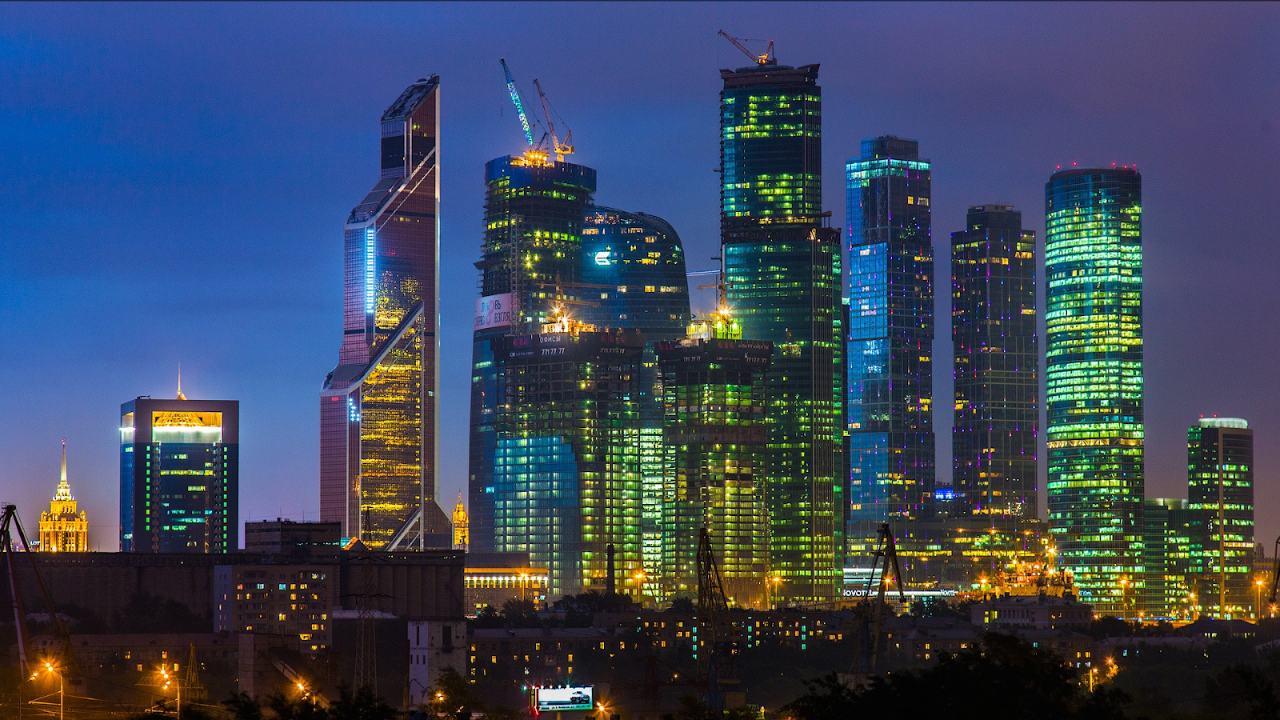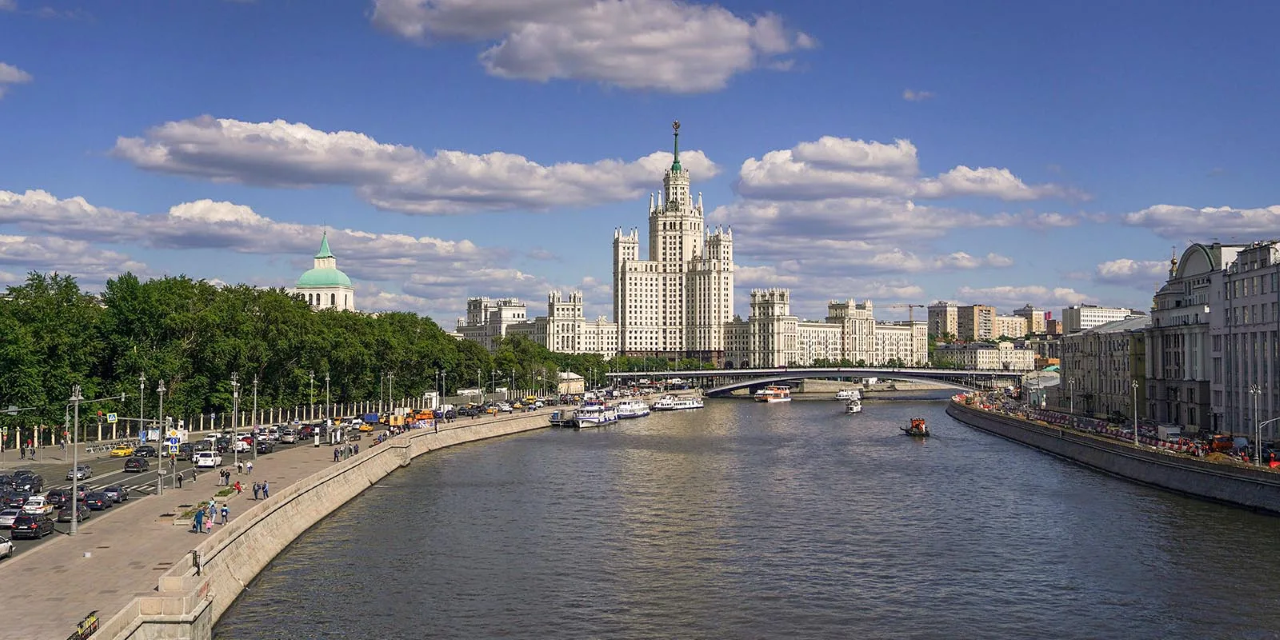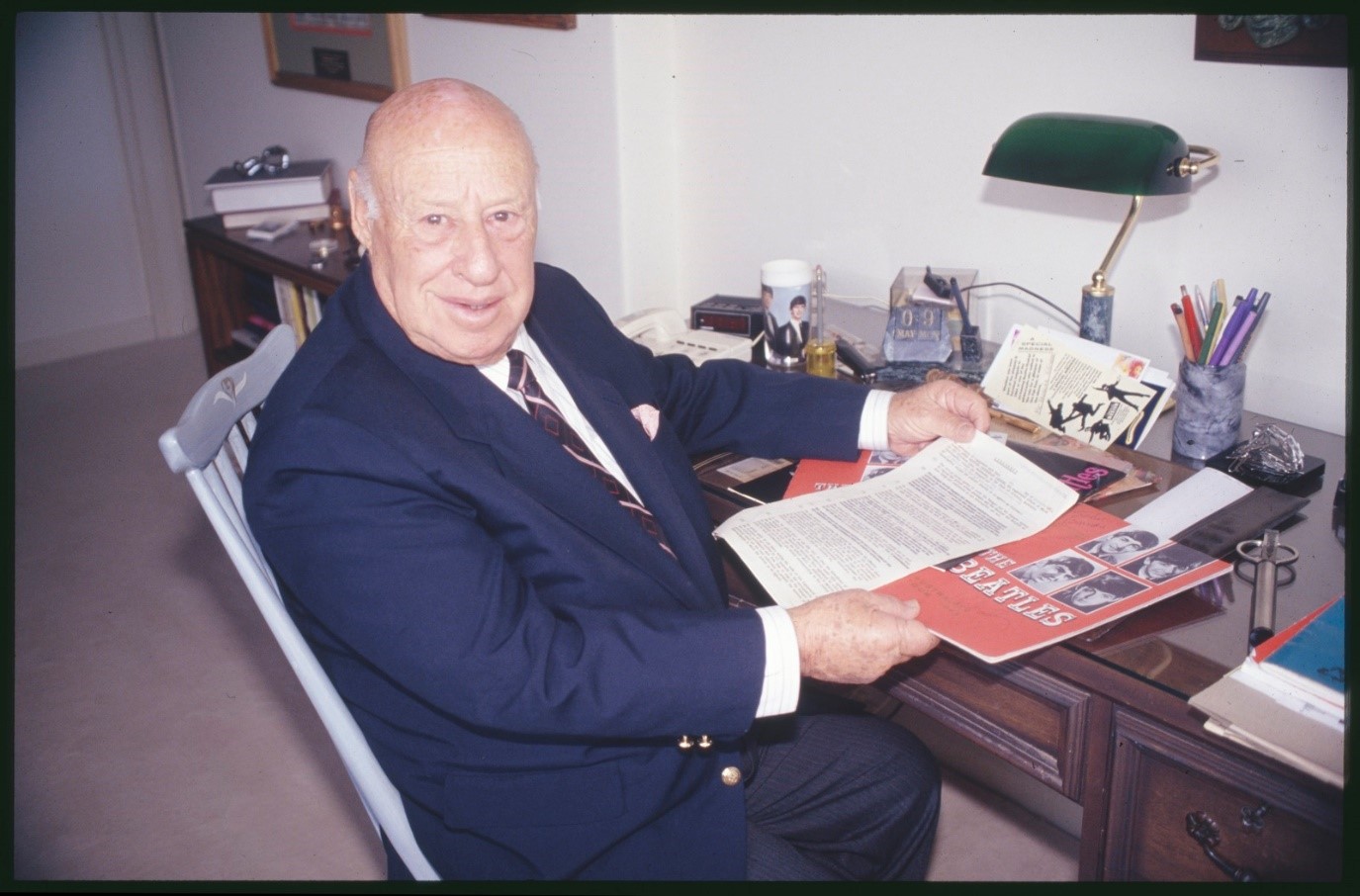The Strange War, Part 2 of 3
Corporate livestream
Hmm, so now these ‘two minutes of love’ at work will go on forever or something? After all, there is not enough pro-Ukraine propaganda in the media or on the Internet! – Lyoshka mumbled to himself agitated, staring at the screen of his laptop, from which a senior boss from the headquarters of their company, located somewhere in Oregon, was doing a corporate livestream. There was a picture of the Ukrainian flag in the background,
Dressed in a beige sweater, a man in his sixties with glasses, with the manners of a teacher, taught his class:
- On behalf of the senior leadership of the firm, I assure you that our company and all of us continue to stand on the side of the free people of democratic Ukraine, who are heroically resisting the unprovoked violence of the occupying forces of the criminal Russian regime and its tyrant Vladimir Putin, who are killing women and children. If one of our employees wants to make a donation to the fund for helping Ukrainian refugees or wants to donate to the Ukrainian army, the company will add a further 20% to these donations. Slava Ukraini! We stand for peace in Ukraine!
Lyoshka seethed inside: You stand for peace. … Of course, you stand for peace, fucking asshole! And you probably stood for fucking peace at your previous fucking job at fucking Lockheed Martin, and before that you were ‘lucky’ to work in Iraq for fucking Baker Hughes after 2003…. probably also protesting against war and demanding peace there, innit you fucking cunt?!’ RRRRRRRR!
Having calmed down a little, Lyoshka nevertheless relaxed and concluded – ‘Well, actually, thank God, at least I haven’t been fired (yet?) out of compassion for Ukraine for having the privilege of having a Russian passport. It’s good enough nowadays!’
Chat with mum
The clocks showed 5:30 pm, and most of Lyoha’s colleagues were already packing up their things and quietly heading home. Lyoha had no particular desire to continue working. Urgent correspondence had already been dealt with, client deliverables with today’s deadline have already been sent, and anything else could be picked up later in the evening from home on his phone. At the same time Lyoha also had no desire to immediately rush home. What for?
Let me call my mum, since I have nothing better to do! – Lyoha decided and went to the nearest free meeting room to ring her via FaceTime.
Right from the start of the conflict Lyoha began to call his parents almost every evening, partly out of curiosity, partly out of worry for them. Fortunately, no tragedies happened, although in the very first weeks it was an extremely worrying situation, which had since reached a certain plateau. Sadly for everyone, a temporary plateau, but there we go. Thank God, none of Lyoha’s acquaintances or relatives chose suicide, the apparent wave of which among the Muscovites of the middle, and especially the upper middle class, was reported with pleasure by the nasty Ukrainian media. So far, no one amongst his acquaintances had lost their jobs.
Lyoha went into the empty meeting room of one of his senior bosses, which overlooked the British Museum. Mom’s going to like the view!
He rang her number.
Silence.
Okay, she’s probably busy. I will call her again in 5 minutes. Staying in the meeting room, Lyoha began to scroll through his Instagram feed, an important tool he thought for measuring the moods in society.
Moscow photographers continued to take pictures of the capital’s skyscrapers under construction, and for the umpteenth time, the Moscow City district skyscrapers.

Moscow City
What is going to happen to them now? Are they going to have enough tenants? Could the Ukrainians blow them up? — Lyoha was thinking, looking at the photographs.
Female bloggers, after a short pause in late February and early March, came back to the platform with their usual posts of photos of their nails, hair, shoes, food porn, kittens and dogs, their barely covered bodies, and gatherings with their friends. Judging only by their Instagram posts, either their world had not changed, or they did not want to share the changes with the world. There was somehow a strange feeling of inconsistency — after all, there is actually a war going on (well, the so-called ‘SVO’ Spetsialnaya Voennaya Operatsia or Special Military Operation), but the usual peaceful life is still in place… Although Lyoha saw with his own eyes copies of British Vogue magazines from 1942–43, so it’s hardly something unusual; nonetheless it was still odd. That’s not how he expected a war to look like, but he felt that it’s not for him from the ‘depths’ to judge his countrymen for their desire to continue holding a peaceful and calm consumerist lifestyle.
On the other hand, the clones of these girls and boys from a neighbouring country from the end of February began to post a completely different set of photos and videos. No bullshit ‘SVO’, these guys are having a real war! The male bloggers took up arms, the girls took up the coordination of assistance for the front (some offline, but most online), and all of them together blazed with hatred for the “occupier orcs”. They had unequivocally been calling since that time for the murder and death of all Russians, their children and mothers on all monopoly social network platforms, who were very happy to host such content on their pages. And it was striking that people on both sides of the barricades were practically indistinguishable by the way they looked, their names, last names, language and slang. They lived in similar cities with similar houses, similar apartments and similar stairwells. This is probably how the gaping abysses between the former parts of one people are slowly (slowly though?) emerging?
But that’s all in the homelands. In the rest of the Instagram world, a normal life has continued: same pictures of happy girls in new outfits on the elegant streets of Paris, Rome and London. Same chique houses, lovely retro cars of the mid-20th century, delicious cakes and pastries, stunning interiors of European palaces and churches, brand new shiny skyscrapers in Melbourne, Guangzhou and Vancouver. The same posts about transphobia, homophobia, insufficient feminism and lack of diversity. Everything is exactly as it was before. One wonders – what is running through the minds of Muscovites or Kievans today when they look at these posts?
* * *
Finally Lyoha’s mum called him back.
- Lyoha: Priviet, Mom!
- Mum: Priviet, Lyoshenka — an elegant lady of around 50 years of age smiled at the camera (although she was in fact closer to 60). She drank coffee or tea from a miniature cup and smoked a miniature women’s cigarette, sitting on the balcony of a Stalinist house on Rostovskaya Embankment. Oh what a beautiful view! Wish I was there! — she continued.

Rostovskaya Embankment
- Lyoha: Oh, mum, you also have such a great view! I sat here on purpose—I knew that you would like to see a bit of London and the British Museum! And of course you will be here in some time, we’ll all be together with dad as well! And I really want to see you both…
- Mum: Because of this VILE EVIL FUCKING CUNT I have no idea when we can make it, if we even will be able to make it!—mum slipped as always on to the same topic … I curse him every day, so that he finally dies! Every morning I wake up and check the news hoping that this fucking piece of shit is dead! Oh, my god, Lyoshenka, you don’t know how strong, how much I wish that this cunt would die, so everything can become good and normal again!
Actually, it was frowned upon to use obscenities in the Timoshenko family; however, after 24 Feb 22, for the first few days it seemed that almost all Russians (including the most refined ones) were only capable of describing their twisted emotions by cursing. ‘Pizdec’ and ‘Ahuy’ [both meaning ‘fucking hell’, but one word derives from ‘cock’ and the other from ‘cunt’], Pizdec and Ahuy—that’s what most people kept saying to themselves and each other, and as times were quite stressful some morals have gotten lax.
- Lyoha: Mom, how can you not understand that, in fact, the interests of our family, and even our class, are now tied to Him and to Whether we like it or not…
- Mum: I want peace with “no annexations or indemnities,” and for everything to be as it was before!
- Lyoha: Mom, well, as you know that just as back then in 1918 there was no peace, and there were annexations and indemnities. The best we can aim for with such ‘peace’ … could very well be a new Treaty of Versailles.
- Mum: Good enough for me! I don’t want to go back to the Soviet Union! I LIVED THERE! You just can’t imagine how terrible and miserable it was there … — Lyoha’s mum sighed and rolled her eyes.
- Lyoha: Well, after all, it’s not really going to be the new Soviet Union …
- Mum: Haha! Indeed! During these 30 years we have forgotten how to produce almost anything. Today we don’t have a self-sufficient industry and especially mechanical engineering—no planes, no trains … all is now made by Siemens and most of our planes are in lease. Hell, I’m not even sure we know how to produce menstrual pads…
- Lyoha: Life will force us to build autarchy… — Lyoha tried to argue, feeling slightly unsure of his argument….
- Mum: You know, this is worse than the Soviet Union, it’s just bloody SOVOK [derogatory name for the Soviet Union with the undermeaning of something rundown and backwarded]! Savings are frozen, Echo Moskvy [The main (((Russian liberal and pro-western))) media platform since 1991—up until the 2010s a radio station, since then a multimedia platform; somewhat comparable to The Guardian] is closed. Prison sentences of 15 years have now been introduced for “anti-state propaganda,” they are talking about re-introducing death penalty for “treason,” people are imprisoned for anti-war rallies and you no longer can easily exchange foreign currency. At least whoever may be trying to escape from the country, thank God, are still being allowed to leave…
The topics and even the phrases of the conversations have not changed for several weeks, just like a broken record, but this did not bother both interlocutors, each of whom received a certain buzz when having such a dialogue. They probably just wanted to get it out of their system and receive some temporary relief from such a discussion.
- Lyoha: Mom, it’s just a country … during war time. That’s all!
- Mum: Oh, thanks Lyosha! So easy for you to say that! That’s horrible! You can’t imagine what it’s like!
Lyoshka, of course, himself agreed that he did not know “what a nightmare it is,” but on the other hand, he was well aware from phone calls with his parents about what they had been doing for the past few weeks. How and with whom and what restaurants they attended together in Moscow, who they saw and which neighbours they hosted as guests at their dacha in Novaya Riga [a prestigious outer Moscow suburb with a bunch of gated communities]. Which brand of foreign wine and champagne they drank there, what premieres they recently attended in theaters and how they “had been forced to” spend their spring vacation in picturesque Karelia [the northern region of Russia next to Finland] instead of London.
- Lyoha: I can’t imagine that, but still…it’s not the end of the world…yet. Everything seems to be fine so far. Most of the Russian people have it far worse…but hold a political view different from yours—Lyoha said in a defensive tone.
- Mum: Fuck the Russian people, this abominable scum! I don’t give a fuck, seriously! If they got used to living in drab colorless poverty forever, then this is not my problem! I don’t want to live like that!—his mother almost hissed with sincere hatred and contempt. And …YOU TELL ME LYOSHENKA, if you are here for the Russian people, why are you supporting the BOMBING OF KIEV AND KHARKOV, huh? My cousin Lena lives in Kiev, with her Seryozha and Bogdanchik, if you forgot? Didn’t you see him in London in 2018? You seemed to have had a good time with him then? Do you support the shelling of their city, huh? Do you think it would be great if their apartment on Khreschatyk [Kiev’s Champs Elysees or London’s Oxford Street] will end up demolished? That’s all for the ‘Russki Mir’ [Russian World—one of the propaganda terms of the Russian side], RIGHT?
- Lyoha: Mom, you should have seen what Bogdanchik has been writing on social media about Russia and Russians even before these events … Yes, Kiev and Kharkov used to be pro-Russian cities, but now they hate us. And yes, they do it in Russian, I can’t argue with that. And if you care so much about ordinary people, I didn’t hear words of indignation from you during the previous 8 years about the Donbass, when they were bombed. I also never heard any condemnation from Aunty Lena or you as well about Odessa [2nd May 2014, where 50+ pro-Russian Ukrainian citizens were burnt alive by the Ukrainian nationalists].
- Mum: I don’t give a shit about Donbass, Donetsk, Lugansk and Odessa! Have you been there at least once, unlike Kiev? Have I been working these thirty years in order to retire without a penny in a fucking gigantic North Korea because of some fucking Donbass? To hell with Donbass!!
- Lyoha: Mom, I’m afraid that the Ukrainians still won’t appreciate your love for them, and I think that Aunt Lena, Serezha and Bogdanchik curse us all together, and in the case of a defeat we will face a massacre! Have you seen the videos of how our boys are being tortured there?
- Mum: It’s their fucking problem that they ended up there! Why the hell were they on a mission in another country? If the Ukrainians come here, we will meet them with your father with bread and salt!
The conversation, as always, was coming to a dead end. Lyoha was too disgusted to continue the conversation (and let’s be frank, his mother for her own reasons was likely disgusted as well). He wanted to share a story gleaned from the recently read memoirs of Berlin Germans in 1945 about how one Berlin communist and his Jewish wife were excitedly waiting for the arrival of the liberation Red Army, and as a result, his stomach was torn open and she was raped by a whole crowd and killed without any appreciation for their “bread and salt,” but at the last moment Lyoha decided to keep it to himself.
But the conversation had to be continued and steered in a more constructive direction. It was mum. Lovely mum, who, like dad, had provided him with a wonderful life. They had sent Lyoha to England to study (and also later his sister), then helped them both with an apartment. It’s actually hard to find an area of his life where they didn’t help with something… They more than fulfilled a plan for “building communism” in the Timoshenko family [meaning building a good life — it’s a Soviet expression that in most cases is used sarcastically, as it was used by Soviet leaders to make promises that were never delivered]. And although his mother was hissing and now saying nasty things about her own people, to love thy neighbour (everyone understands who’s the neighbor in their own way, and for Lyoha that was the Russian people), Lyoshka was taught by his parents’ example—their own gentle nature and homey warmth.
You have no right to utter a word, or even be offended or annoyed, Lyoha!—Lyoha’s inner voice told him and then added—You must endure!

Tekstilshiki in winter, Moscow, 2000s or 2010s.
Well, deny it or not, you are a comprador bourgeoisie and you know it, Lyoha. It is unpleasant to admit that you belong to this class of parasites, or rather servants of real parasites, but on the flipside, it was quite lucky to have a relatively comfortable life in Russia in that historical period. It would be foolish to refuse it, especially since his parents were not really some kind of bloodsucking monsters. Mum built her career in boutique private banks, dad made it in public relations for multinationals. All their life they have always paid their taxes, never received any bribes and if they paid any, they were for speeding tickets back in the 1990s. They have always done their jobs in accordance with the law. If the law was dodgy at some point, well, it’s not the parents who made them, and they were certainly not the rebels to question or fight against them. Yes, from early childhood, Lyoshka recalls, every morning began with the sounds of Echo Moskvy in the kitchen, but there was never any self-hate at home, no one repented for their own Russianness. The word ‘bydlo’ [White trash] was rarely used at home to describe others and no one at home told Lyoha not to associate with someone because they were of a lower social class.
Lyoshka did not grow up as a typical upper-middle-class liberal with a sense of entitlement. In the 1990s, although his parents voted for Yeltsin, like everyone else at that time, they still despised him and his entire gang. All of the Timoshenko family often stayed at the shabby dacha [Russian summerhouse, and to have one in family ownership at the end of Soviet Era was quite common even among working classes] with his grandparents. They helped grow potatoes, berries and vegetables in the garden, and later in the year to pickle the vegetables for the winter. Then towards the end of the 1990s when most of the economic horrors had passed, trips to the dacha were replaced with trips to Turkey in the summer, and at the same time his grandparents replaced their garden with flowers or lawns. It was much more exciting to go to a large supermarket with choice where everything was cheap, just as it was much more fun to go to an “all inclusive” resort for a couple of weeks than to the native dacha. The whole family really liked it there—these were the first trips abroad for everyone in the family. The Iron Curtain was indeed very real up until 1992.

Dachas
At the very beginning of the 2000s, like everyone else, the entire family was inspired by the handsome and sharp young president, and the careers and lives of both his parents were really boosted then compared to the 1990s. Only by the end of that decade (after Lyoha graduated from secondary school) did his parents move to the prestigious Stalinist housing complex at Rostovskaya Embankment from the drab proletarian (even in the name!) Tekstilshiki (literally Textile Workers’ in Russian) district. When Lyoshka came to visit his parents at their new place, while still living in Moscow, he felt a little bit out of place. He continued to think of himself as a “man of the people,” although, of course, it was quite laughable for him to think so.
Still, none of the Timoshenko family uttered at home very fashionable phrases of that era amongst (((refined Russians))) such as “I need to go on vacation (abroad) where there are no other Russians.” It would even have sounded out of place. Why would you hate yourself for what you are?
His mum continued to complain about her life, and Lyoha remembered a recent similar conversation with a classmate from Moscow State University. He also had a wonderful view from his apartment which Lyoha admired when they had their regular video calls. He was sitting on his balcony in a high-rise apartment in a Stalin’s skyscraper on Kotelnicheskaya Embankment, which he inherited from his grandfather, a Soviet general, a World War II veteran.
That friend, like Lyoha, or even to a greater extent Lyoha’s parents, belonged to the same stratum—the middle layer of the Moscow upper middle class, although this ‘tovarish’ [literally comrade in Russian] always claimed that he’s also a man of the “people.” In fact, specifically he meant the “Soviet people” (but not Russian!), for he considered himself “red-brown.” He was proud that his brother had even participated in those events [September/October 1993 patriotic uprising against (((the Yeltsin’s regime))) in Moscow that was in the end put down by pro-government tanks].
However, as Marx said that one’s social being determines one’s consciousness, during a recent call with this (((Felix))) (even his name was a bit Soviet!) … this comrade very rudely denounced the war. He called Putin a “Nazi who went completely bonkers,” lamented the loss of his refined lifestyle, and just like Lyoha’s mother, he easily dismissed his remarks about the Ukrainian tortures of the Russian soldiers, arguing that they supposedly knew how they would end up after crossing the other state’s border. And at that point Lyoha, just like now, also felt physically disgusted and angry, but he did not dare to argue. Though he was capable of doing so, at the end of the day, talk is cheap at this stage. What moral right had he to lecture as a person from well-fed and calm London where there is no war (neither real nor economic)? Especially to lecture his close friends or his family. Who knows what Lyoha himself would say, if he were living in Moscow today? Endure!—said an inner voice, To remain silent in front of a friend costs nothing to you. However deep inside Lyoha could not keep himself from chuckling that Felix, a communist-rentier with two apartments on the Garden Ring (a prestigious ring street that goes around central Moscow) and other inherited wealth from his communist-party functionary ancestors, who used to belittle pre-Revolution Russian bourgeoisie and nobleman for being so attached to their wealth and possessions, got extremely worried when his wealth and possessions became at risk, and now he himself may become a victim of a new Russian revolution and the enraged Russian volk.
- Mum: How is Ollie?—she found a compromise and calm topic.
- Lyoha: He’s a sweet and magical gnome as always. Today I’m seeing them all and I bought a bear doll for my beloved nephew. Let me show you!
He smiled with pleasure, going back to the open space in the office for his bag.




 Brodziak in 1994, showcasing his original Beatles contract (Rennie Ellis—State Library of Victoria)
Brodziak in 1994, showcasing his original Beatles contract (Rennie Ellis—State Library of Victoria)




